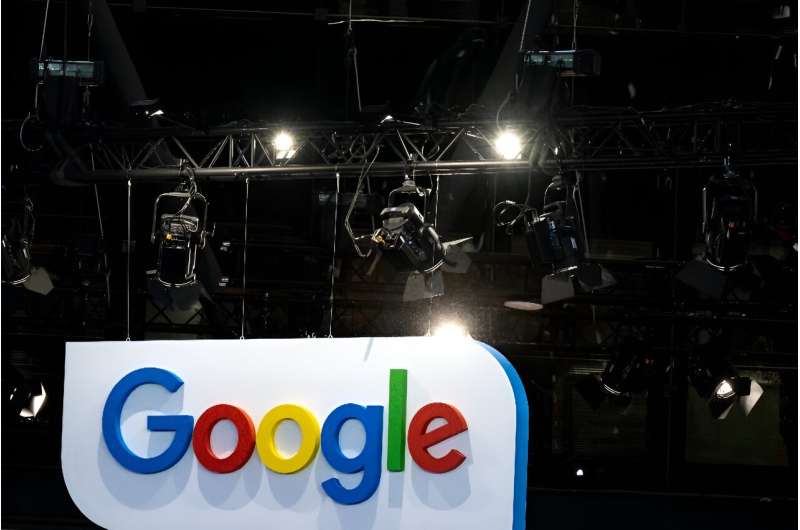This article has been reviewed according to Science X's editorial process and policies. Editors have highlighted the following attributes while ensuring the content's credibility:
fact-checked
reputable news agency
proofread
US takes on Google in landmark antitrust trial

A landmark case pitting the US government against Google over the dominance of the company's world-dominating search engine kicked off in a Washington courtroom on Tuesday.
"This case is about the future of the internet and whether Google will ever face meaningful competition in search," said Justice Department lawyer Kenneth Dintzer as the United States government began making its case against the tech titan.
Over the course of 10 weeks of testimony involving more than 100 witnesses, Google will try to persuade Judge Amit P. Mehta that the landmark case brought by the Department of Justice is without merit.
Held in a Washington courtroom, the trial is the biggest US antitrust case against a big tech company since the same department took on Microsoft more than two decades ago over the dominance of its Windows operating system.
"Even for Washington DC, I think we have the highest concentration of blue suits in any location here today," Mehta joked, observing the dozens of lawyers packed into his courtroom.
The Google case centers on the government's contention that the tech titan unfairly gained its domination of online search by forging exclusivity contracts with device makers, mobile operators and other companies that left rivals no chance to compete.
Dintzer told Judge Mehta that Google pays out $10 billion every year to Apple and others to secure its search engine default status on phones and web browsers, thereby burying upstarts before they have a chance to grow.
Over the past decade, this created what the government calls a "feedback loop" in which Google's dominance of search grew ever bigger because of its monopolist access to user data that rivals could never match.
That dominance has made Google parent Alphabet one of the world's richest companies, with search ads generating nearly 60 percent of the company's revenue, dwarfing income from other activities such as YouTube or Android phones.
"We will track what Google did to maintain its monopoly... It's not about what it could have done or should have done, it's about what they did," Dintzer told the court.
Court 'cannot intervene'
Google firmly rejected the US case saying that its search engine was successful because of its quality and the huge investments made over the years.
"Google has for decades innovated and improved its search engine, plaintiffs escape this inescapable truth," Google's lawyer John Schmidtlein argued before the court.
"This court cannot intervene in the market and say 'Google you are not allowed to compete.' That is anathema to US antitrust law," he said.
Schmidtlein insisted that testimony from executives at Apple and others will demonstrate that Google won the coveted default status on iPhone and the Safari browser "on the merits."
The biggest alleged victims in the case are rival search engines that have yet to eke out a meaningful market share for search or search ads against Google, like Microsoft's Bing and DuckDuckGo.
Google remains the world's go-to search engine, capturing 90 percent of the market in the United States and across the globe, much of which comes through mobile usage on iPhones and phones running on Google-owned Android.
Mehta's ruling is expected many months after the roughly three months of expected hearings.
He could dismiss the government's arguments or order drastic remedial action such as a breakup of Google's businesses or a revamp of the way it operates.
Whatever the outcome, the ruling will almost certainly be appealed by either side, potentially dragging the case on for years.
Launched in 1998, Washington's case against Microsoft ended in a settlement in 2001 after an appeal reversed an order that the company be split up.
The US government launched its case against Google during the Trump administration and the suit carried over in the transition to President Joe Biden.
Biden has also made a point of challenging tech giants and nominated well-known tech critics to key posts, but with little yet to show for it.
In January, Biden's Department of Justice launched a separate case against Google involving its advertising business and this could go to trial next year.
The company also faces various lawsuits from US states that accuse it of abusing monopolies in ad tech and for blocking competition in its Google Play app store.
© 2023 AFP





















